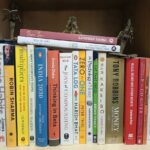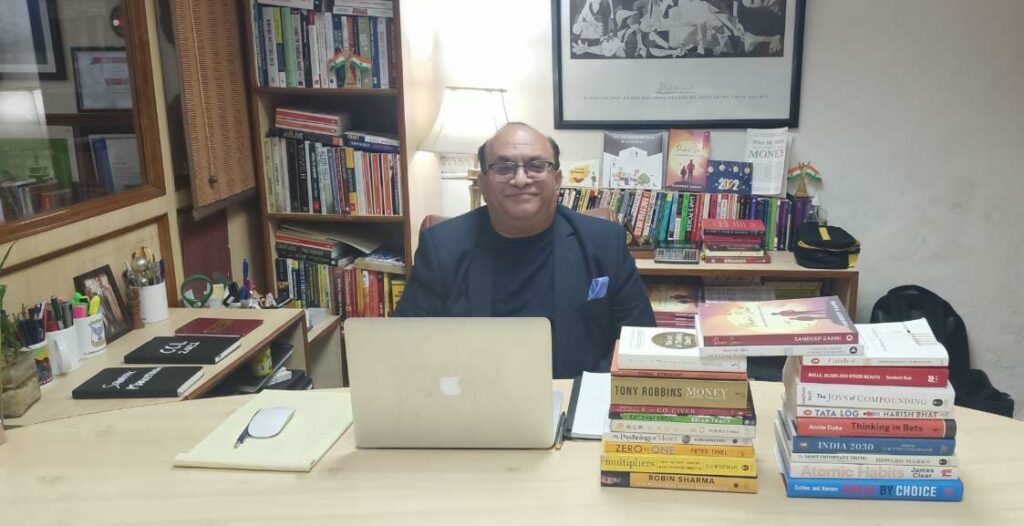
“The man who does not read good books has no advantage over the man who can’t read them.” – Mark Twain
The great never stop learning. Warren Buffett, Charlie Munger and John Templeton all continued to learn well past the age of most people’s retirement, and despite decades of success, they all had the humility to recognise there was so much more to learn. Eminently successful practitioners have always acknowledged their continued evolution as learners. An average CEO reads 50 books in a year to upgrade themselves.
The tools for learning are abundant. It’s the desire to learn that’s scarce.If you can’t get access to great, famous people to be your mentors, reading books written by them is the next best alternative. Many CEOs and great leaders in the world would not hesitate to purchase a book. For the value which a book can bring, they are a bargain. A Rs 500 book could change your life.
If a book you read just gives you one idea that changes your perspective, it’s worth it. Knowledge is powerful, and books are great teachers. Learning is endless.
Reading has been a passion since I was a child.Unfortunately, the travesties of life and deluge of social media in the recent past made me lose focus, and my reading suffered. The pandemic and the lockdown gave another opportunity to renew my love with books and I started reading vigorously once again and targeted reading for a minimum of 60-90 minutes and around 25000 words a day.
For me reading has been a great way to turn away from stress, negativity and constant electronic bombardment. Opening a book led to positive distraction similar to meditation, and it brought about the same health benefits of deep relaxation, inner calm, joy and sense of accomplishment, apart from the learning andmaking my imagination run wild.
Iam sharing a list of the books, in no particular order, that I enjoyed reading the most, in the year gone by. Hope you too savour the books and find them enlightening. (Do give me your feedback and comments on the same.)

- Kakeibo Budget Book
This one really helped me in my budgeting exercise. Kakeibo is the traditional Japanese method of money management. This kakeibo version is designed so that it will last one whole year, regardless of when you start your journal. Designed like a diary, it allows you to record all your expenses and where money goes. By keeping close tabs on what I was spending, I was able to identify the waste and see the most significant areas where adjustments can be made, and thus control my spending and set a savings target.

- What My MBA Did Not Teach Me About Money
Spreading financial literacy is a personal passion and this is what led to my co-authoring this book. How we “think” about money is very different from how we “feel” about it. While separating the two on paper is easy, sticking to budgets, having financial conversations, calculating risk & reward, following investment plans, and preserving wealth is often challenging. This is why personal finance is so hard and making money decisions so tough.
‘What My MBA Did Not Teach Me About Money’ gives real and practical strategies to work around
Money beliefs, Hiccups in finance, Navigating stock markets, Overcoming our own biases and
controlling our vulnerabilities in those special situations when we are most likely to make money mistakes
Each of the strategies presented in the book is derived from practical experiences of our own lives and from advising our clients. This book is about bridging the gap between the “feeling” human perspective and the “thinking” financial perspective of money.
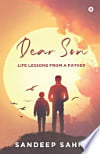
- Dear Son
‘Dear Son….’ Is a from the heart, experience sharing by me for my son Vaibhav on his 21st Birthday on the threshold of adulthood. Divided into 21 Chapters, it is easy to read and covers a wide variety of topics of importance for every young adult.
Essential and insightful read for parents to guide their children as they enter adulthood and a must read for every young adult starting their life journey and lost in the maze of Dreams, Goals, Money, values, character,
upskilling, health etc. and looking for answers to the mysteries of life and how to prioritize and balance the
various aspects. An exciting journey with endless possibilities awaits you and if you are looking at how to prepare for life, approach it and prioritize your tasks, this book is for you.

- The Everyday Hero Manifesto
For over twenty-five years, leadership legend and personal-mastery path-blazer Robin Sharma has mentored billionaires, business titans, professional-sports superstars and entertainment royalty via a revolutionary methodology that led them to accomplish rare-air results. Now, in this groundbreaking book, Sharma makes his transformational system available to anyone who is ready for undefeatable positivity, monumental productivity, deep spiritual freedom and a life of helping others. I found many of the chapters really inspiring.
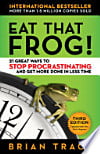
- Eat That Frog! – Stop Procrastinating.
There’s an old saying that if the first thing you do each morning is eat a live frog, you’ll have the satisfaction of knowing you’re done with the worst thing you’ll have to do all day. ‘Eating a frog is a metaphor for tackling your most challenging task–but also the one that can have the greatest positive impact on your life. Eat That Frog! shows you how to organize each day so you can zero in on these critical tasks and accomplish them efficiently.
There just isn’t enough time for everything on our to-do list–and there never will be. Successful people don’t try to do everything. They learn to focus on the most important tasks and make sure those get done. They eat their frogs.
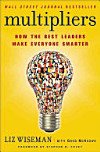
- Multipliers – Are you a genius or a genius maker?
We’ve all had experience with two dramatically different types of leaders. The first type drain intelligence, energy, and capability from the ones around them and always need to be the smartest ones in the room. These are the idea killers, the energy sappers, the diminishers of talent and commitment. On the other side of the spectrum are leaders who use their intelligence to amplify the smarts and capabilities of the people around them. When these leaders walk into a room, lightbulbs go off over people’s heads, ideas flow, and problems get solved. These are the leaders who inspire employees to stretch themselves to deliver results that surpass expectations. These are the Multipliers.
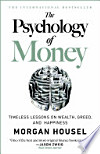
- The Psychology of Money
Doing well with money isn’t necessarily about what you know. It’s about how you behave, and behavior is hard to teach, even to really smart people.
Money—investing, personal finance, and business decisions—is typically taught as a math-based field, where data and formulas tell us exactly what to do. But in the real-world people don’t make financial decisions on a spreadsheet. They make them at the dinner table, or in a meeting room, where personal history, your own unique view of the world, ego, pride, marketing, and odd incentives are scrambled together.
In The Psychology of Money, which has sold more than a million copies, award-winning author Morgan Housel shares 19 short stories exploring the strange ways people think about money and teaches us how to make better sense of one of life’s most important topics.
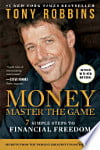
- MONEY- Master the Game
Tony Robbins turns to the topic that vexes us all: How to secure financial freedom for ourselves and for our families. Forbes in their review wrote, “If there were a Pulitzer Prize for investment books, this one would win, hands down”.
Tony Robbins is one of the most revered writers and thinkers of our time. People from all over the world—from the disadvantaged to the well-heeled, from twenty-somethings to retirees—credit him for giving them the inspiration and the tools for transforming their lives. From diet and fitness to business and leadership, to relationships and self-respect, Tony Robbins’s books have changed people in profound and lasting ways. Now, for the first time, he has assembled an invaluable “distillation of just about every good personal finance idea of the last forty years”

- Atomic Habits
This book is all about Tiny Changes and Remarkable Results.
No matter what your goals, Atomic Habits offers a proven framework for improving–every day. James Clear, one of the world’s leading experts on habit formation, reveals practical strategies that will teach you exactly how to form good habits, break bad ones, and master the tiny behaviors that lead to remarkable results.
If you’re having trouble changing your habits, the problem isn’t you. The problem is your system. Bad habits repeat themselves again and again not because you don’t want to change, but because you have the wrong system for change. You do not rise to the level of your goals. You fall to the level of your systems. Recommend that you read this one immediately to get going on good habits.

- Zero to One
Thiel starts from the bold premise that we live in an age of technological stagnation, even if we’re too distracted by our new mobile devices to notice. Progress has stalled in every industry except computers, and globalization is hardly the revolution people think it is. It’s true that the world can get marginally richer by building new copies of old inventions, making horizontal progress from “1 to n.” But true innovators have nothing to copy. The most valuable companies of the future will make vertical progress from “0 to 1,” creating entirely new industries and products that have never existed before. Zero to One is about how to build these companies. Tomorrow’s champions will not win by competing ruthlessly in today’s marketplace.

- Bulls, Bears and Other Beasts
This is one book I re-read this year. It provides amazing insights and perspective into how Dalal Street evolved over the years and the dynamics at play in the markets over the years.
The Indian stock market details are portrayed through the wise and wily Lalchand Gupta who takes you on an exciting journey through Dalal Street in this comprehensive history of the stock market since 1991. From tech booms and tax evasion to banks and money laundering; scams and crashes to fixers and investors, Lala has seen it all and shares all.
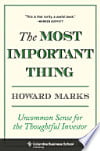
- The Most Important Thing
Howard Marks, the chairman and cofounder of Oaktree Capital Management, is a personal favourite for his insightful memos and is renowned for his detailed assessments of market opportunity and risk. After four decades spent ascending to the top of the investment management profession, he is today sought out by the world’s leading value investors, and his client memos brim with insightful commentary and a time-tested, fundamental philosophy. This book is Marks’s wisdom, concentrated into a single volume that speaks to both the amateur and seasoned investor.
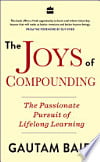
- The Joys of Compounding
Compounding is the 8th Wonder of the World and is applicable to not only investing but in all areas of life. Value investing is not just a system for success in the market. It is also an intellectual toolkit for achieving a deeper understanding of the world. In The Joys of Compounding, the value investor Gautam Baid builds a holistic approach to value investing and philosophy from his wide-ranging reading, combining practical approaches, self-cultivation, and business wisdom.
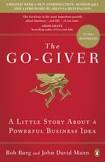
- The Go-Giver
This international bestseller comes with a radically simple message.‘The Go Giver’ is a life changer and reinforces my belief of, ‘You have to give to receive.’ I could actually relate to the protagonist, Joewho yearns for success. Joe is a true go-getter, though sometimes he feels as if the harder and faster he works, the further away his goals seem to be.
One day, desperate to land a big deal at the end of a bad quarter, he seeks advice from the enigmatic Pindar, a legendary consultant referred to by his devotees simply as the Chairman. Over the next week, Pindar introduces Joe to a series of ‘go-givers’: a restaurateur, a CEO, a financial adviser, a broker, and the ‘Connector’ who brought them all together. Pindar’s friends share the ‘Five Laws of Stratospheric Success’ and teach Joe how to open himself up to the power of giving. Joe learns that changing his focus from getting to giving putting others’ interests first and continually adding value to their lives, leads to unexpected returns.

- Great by Choice
Ten years after the worldwide bestseller,‘Good to Great’, Jim Collins returns with another groundbreaking work, this time to ask: Why do some companies thrive in uncertainty, even chaos, and others do not? Based on nine years of research, buttressed by rigorous analysis, and infused with engaging stories, Collins and his colleague, Morten Hansen, enumerate the principles for building a truly great enterprise in unpredictable, tumultuous, and fast-moving times. ‘Great by Choice’ distinguishes itself from Collins’s prior work by its focus not just on performance, but also on the type of unstable environments faced by leaders today.
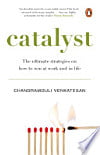
- Catalyst
I bought and read this book more as a tribute to my friend, Chandermouli, who passed away recently. But I found his writing most insightful and useful to get the most out of every moment, every day and to succeed at your workplace.
A good job, hard work, IQ, EQ, good communication skills–these are all ingredients for a successful life. The presence of these elements alone, however, does not guarantee success. To convert them into long-term success, you need certain stimuli which precipitate or accelerate your growth. This robustly effective book identifies the various catalysts that you can cultivate and how you can leverage them to propel yourself in your work and life. Accessible, engaging, and easy to follow, and written by someone who has experienced all this in real life and not in theory.
Cheers Mouli, shall miss you and your writings.

- The Art of Thinking Clearly
One of the best books I have read on ‘Cognitive biases’, showing us what we can do to recognize and minimize these “thinking errors” to make better decisions and have a better life
Despite the best of intentions, humans are notoriously bad—that is, irrational—when it comes to making decisions and assessing risks and tradeoffs. Psychologists and neuroscientists refer to these distinctly human foibles, biases, and thinking traps as “cognitive errors.” Cognitive errors are systematic deviances from rationality, from optimized, logical, rational thinking and behavior. We make these errors all the time, in all sorts of situations, for problems big and small in all areas of our life.
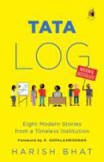
- Tata log
From steel to beverages and from supercomputers to automobiles, TATA companies have broken new ground and set new standards of excellence over the past two decades. Tata log presents eight riveting and hitherto untold stories about the strategic and operational challenges that TATA companies have faced, and the forward thinking and determination that have raised the brand to new heights. The engaging and inspiring stories demonstrate the principles that TATA stands for.

- Think Straight
‘Think straight’ literally talks about how to think straight and declutter your mind of unwanted thoughts, so as to properly channelize whatever you think towards something productive. The author has appropriately talked about the motto of this book himself: “The emphasis is on deciding. And that’s what this book is about: with practice, you can get better at controlling your thoughts so you can decide what you think.”

- India 2030
“India 2030: The Rise of a Rajasic Nation” is a collection of essays by the likes of Bibek Debroy, Vikram Sood, Ram Madhav and David Frawley, among others.
These are 20 forecasts by 20 thought leaders on 20 themes ranging from education to healthcare, science, energy, politics and foreign policy, that will impact and influence India through the 2020s as it becomes the 3rd largest economy. They speak of their predictions for India in 2030 and look at how the nation will evolve this decade.

- Thinking in Bets
Thinking in bets starts with recognizing that there are exactly two things that determine how our lives turn out: the quality of our decisions and luck. Learning to recognize the difference between the two is what thinking in bets is all about.
One of author Annie Duke’s key insights is: ‘life is more like poker than chess’ meaning, we often make decisions and negotiate in an atmosphere of tension and deceit, without all of the information, based on probability (like poker).As opposed to making choices and deals in a rational, formal, mechanistic context, where all of the information is available, and based on game theory, where we can reasonably assume the other player will make their best move (like chess). One of the quotes from the book that I liked and could immediately relate to was, “In most of our decisions, we are not betting against another person. Rather, we are betting against all the future versions of ourselves that we are not choosing.”
Happy Reading!
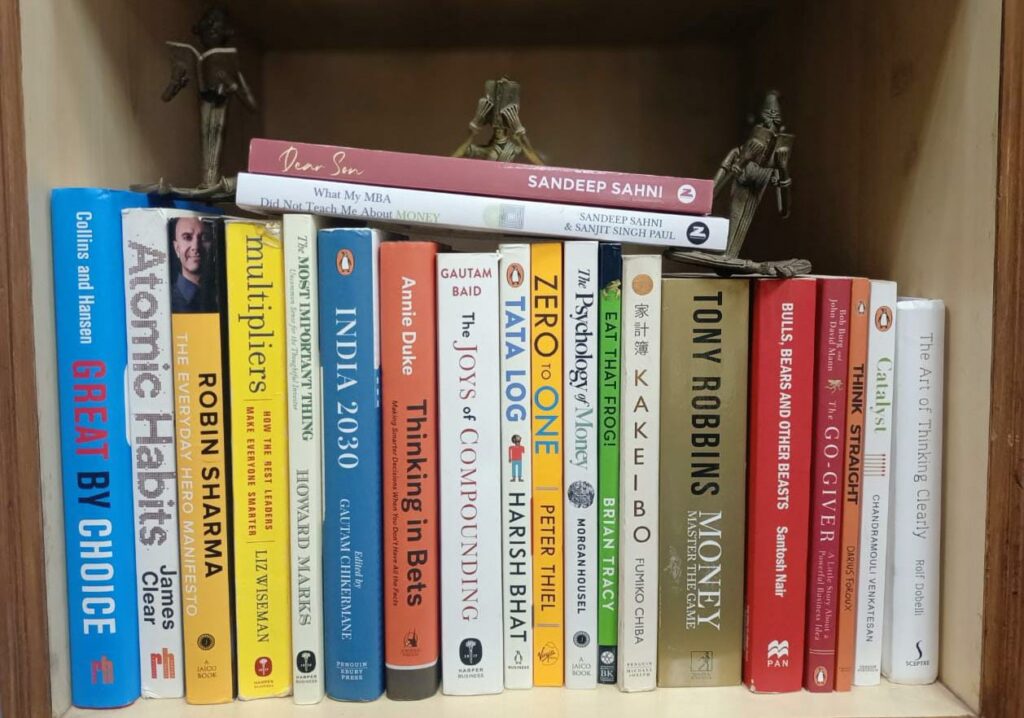
Let’s end the year with these profound words of Avvaiyar, a Tamil Poet, “What we know is but a fistful, what we do not know is the entire universe”
Let’s develop the craving of becoming humble by being aware and by taking a vow to read and to continue our journey of learning in the coming year and beyond.
We wish you enough and May the New Year bring New Hopes and New Dreams for you.
Stay Blessed Forever.

Kindly check our earlier blog on a similar subject : Investment Lessons from Mythology at https://sahayakgurukul.blogspot.com/2019/03/investment-lessons-from-mythology.html OR https://www.sahayakassociates.in/resources/our-blog/2553-sahayak-associates/sahayak-associates-blog/8435-investment-lessons-from-mythology
Note: All information provided in this blog is for educational purposes only and does not constitute any professional advice or service. Readers are requested to consult a financial advisor before investing as investments are subject to Market Risks.
About The author

Sandeep Sahni
After completing his schooling from St. Johns, Chandigarh (Class of 1980) and Modern School, New Delhi, (Class of 1982) Sandeep did his B. Com (Hons.) from Shri Ram College of Commerce, Delhi University (Class of 1985)
Sandeep is an alum of IIM Lucknow with a Post Graduate Degree (MBA class of 1988).
He has also written two books, ‘Dear Son, Life Lessons from a Father’ on the teachings of Life https://www.amazon.in/dp/1637815271 and the Second book which he has Co Authored titled, ‘What My MBA Didn’t teach me about Money’ on the Human and Financial perspective of money. https://www.amazon.in/dp/1637816502
He has a rich work experience and started his career as a corporate man with Asian Paints after IIML. He has a rich experience covering the FMCG, Food Distribution, Cold Chain, Logistics, and Hospitality Industries. He is currently in the Wealth Management and Personal Finance domain. He has a passion for finance and is an active speaker on topics in finance. The stories he narrates strike a chord close to his heart, as they are based on events from his own life. He believes in a holistic view of Personal Finance.
Sandeep’s investing experience and study of the Financial Markets spans over 30 years. He is based in Chandigarh and is advising more than 500 clients across the globe on Financial Planning and Wealth Management.
He has promoted “Sahayak Gurukul” which is an attempt to share thoughts and knowledge on aspects related to Personal Finance and Wealth Management. Sahayak Gurukul provides financial insights into the markets, economy and Investments. Whether you are new to the personal finance domain or a professional looking to make your money work for you, the Sahayak Gurukul blogs and workshops are curated to demystify investing, simplify complex personal finance topics and help investors make better decisions about their money.
Alongside, Sandeep conducts regular Investor Awareness Programs and workshops for Training of Mutual Fund Distributors, and workshops and seminars on Financial Planning for Corporate groups, Teachers, Doctors and Other professionals.
Through his interactions and workshops, Sandeep works towards breaking the myths and illusions about money and finance.
His passion has driven him towards career counselling for young adults and mentoring the youngsters on achieving their life goals and becoming “Successful Humans”
He also writes a well-read blog; https://sahayakgurukul.blogspot.com
He has also conducted presentations, workshops and guest lectures at professional colleges and management institutes for students on Financial Planning and Wealth Creation.
He can be reached at:
+91-9888220088, 9814112988,
[email protected]
Follow on:
www.sahayakassociates.in,
www.facebook.com/sahayakassociates,
www.twitter.com/sahayakassociat,https://www.instagram.com/sahayakassociates/
https://sahayakgurukul.blogspot.com, https://www.sahayakassociates.in/resources/our-blog

